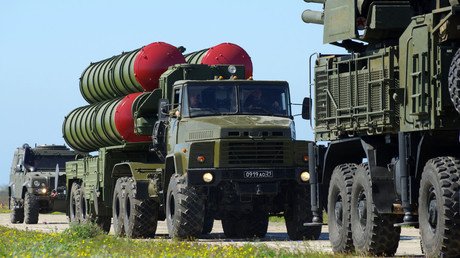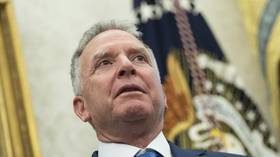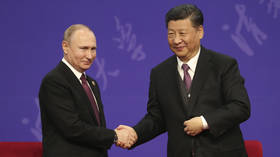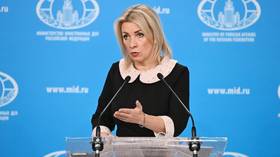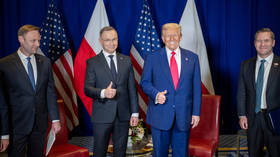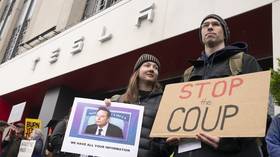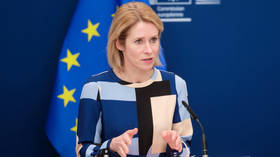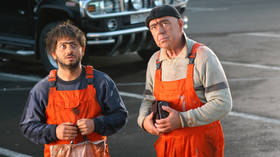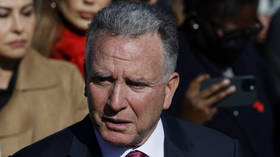‘Highway robbery’: Tehran protests assets freeze for US victims of ‘Iranian terror’
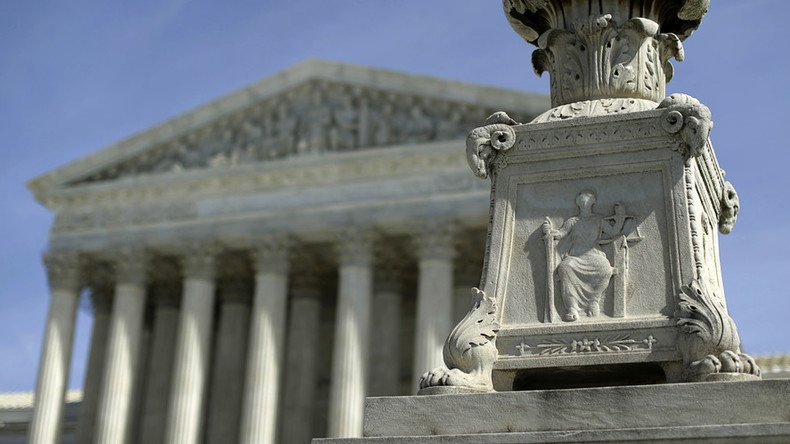
Iran has summoned the Swiss Ambassador in Tehran, who represents American interests in the country, to relay a formal note of protest regarding a US Supreme Court ruling that froze $2 billion of the country’s assets to compensate American victims of “Iranian terror.”
During the meeting with Ambassador Giulio Haas the Iranian Foreign ministry has presented an official note of protest over the ruling by the US Supreme Court last week that approved the transfer of about $2bn of frozen Iranian assets to the families of victims of terrorist attacks.
The attacks in question pertain to the 1983 bombing of a US Marine barracks in Beirut that killed 241 US servicemen, and the 1996 Khobar Towers bombing in Saudi Arabia that killed 19 Americans.
PressTV LIVE
— Press TV (@PressTV) April 25, 2016
Zarif: Iran considers U.S. government responsible For protecting Iran’s assetshttps://t.co/uZFhlny0lgpic.twitter.com/r892AgN2Ss
The Supreme Court decision affects more than 1,000 Americans, including survivors and families of attack victims that court judges have attributed to Iranian operatives.
The Islamic Republic called the US court ruling “a blatant violation of mutual contract obligations such as the 1955 treaty between the two countries, as well as US international legal commitments on the judicial immunity and inviolability of the assets and properties of the Islamic Republic of Iran.”
The Iranian side also handed over a second note of protest objecting to another ruling in New York in March, that accused Tehran of taking part in the 9/11 terrorist attacks. The NY court ruled that Iran was liable to pay $10 billion to the victims of 9/11 after Tehran failed to defend itself against the charges.
Stressing that the New York court failed to provide “any evidence” the foreign ministry called the allegations “baseless and contrary to accepted practices of international law that guarantees governments’ judicial immunity.”
While Ambassador Haas promised to promptly relay Tehran's protest to Washington, the State Department has yet to produce a comment on the matter.
“We don’t have any kind of readout yet,” deputy spokesperson Mark Toner said in reply to the question about Haas summon. “I – we can certainly try to share what they convey, but I’m not sure how much I can share.”
In addition to handing over the two notes of protest, Iran’s Supreme Court also lashed out against the two court rulings.
“The courts of every country have authority over their own territory and international civil cases,” which must be handled either through the International Court of Justice or through mutual agreement, Mizan Online reported. “These decisions are based on no logic other than the law of jungle and are more like an instance of international banditry rather than legal action.”
Iran’s foreign minister @JZarif talks with @wrightr about the fraying relations between the U.S. and his country: https://t.co/8t9LQDvN1d
— The New Yorker (@NewYorker) April 26, 2016
On Monday, Iran's Foreign Minister Mohammad Javad Zarif threatened to take legal action against the US in the International Court of Justice (ICJ) if the frozen funds are “diverted.”
Speaking at a joint news conference with visiting Macedonian counterpart Nicolas Poposki, Zarif said,
“We hold the US administration responsible for preservation of Iranian funds and if they are plundered, we will lodge a complaint with the ICJ for reparation.”
In a separate interview with the New Yorker, Zarif made it clear that Iran has lost all hope for the American justice system, calling the US Supreme Court decision a “theft.”
“I have lost every respect for US justice,” the FM said. “These cases cannot stand in any serious civilized court of law. When a US court condemns Iran for 9/11, it finishes the credibility of the US justice system when it comes to Iran.”
“The Supreme Court is the Supreme Court of the United States, not the Supreme Court of the world. We’re not under its jurisdiction, nor is our money. It is a theft. Huge theft. It is highway robbery,” Zarif stressed.
